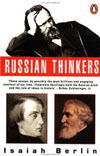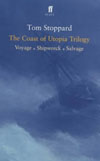 New York readers save the date!
New York readers save the date!
Next Wednesday the 28th the Institute is hosting the first of what hopes to be a monthly series of new media evenings at Brooklyn’s premier video salon and A/V sandbox, Monkeytown. We’re kicking things off with a retrospective of work by our longtime artist in residence, Alex Itin. February 15th marked the second anniversary of Alex’s site IT IN place, which we’re preparing to relaunch with a spruced up design and a gorgeous new interface to the archives (design of this interface chronicled here and here). We’d love to see you there.
For those of you who don’t know it, Monkeytown is unique among film venues in New York — an intimate rear room with a gigantic screen on each of its four walls, low comfy sofas and fantastic food. A strange and special place. If you think you can come, be sure to make a reservation ASAP as seating will be tight.
More info about the event here.
Category Archives: performance
back to the backlist
 An article in last Sunday’s NYT got me thinking about how book sales can be affected by media, in quite different ways than music, or even movies are, as illustrated in Chris Anderson’s blog mentioned here by Sebastian Mary. While bands, and even cineasts, are increasingly using the Web to share and/or distribute their productions for free, they are doing it in order to create a following; their future live audience in a theater or club. Something a bit different happens with classical music, and here I include contemporary groups that don’t fit the “band” label, where the concert experience usually precedes the purchase of the music. In the case of classical music, the public is usually people who can afford very high prices to see true luminaries at a great concert hall, and who probably don’t even know how to download music. The human aspect of the live show is what I find fascinating. A great soprano might be having a bad night and may just not hit that high note for which one paid that high price, but nothing beats the magic of sound produced by humans in front of one’s eyes and ears. Though I love listening to music alone, and the sounds of the digestion of the person sitting next to me in the theater mortify me, I wouldn’t exchange the experience of the live show for its perfectly digitized counterpart.
An article in last Sunday’s NYT got me thinking about how book sales can be affected by media, in quite different ways than music, or even movies are, as illustrated in Chris Anderson’s blog mentioned here by Sebastian Mary. While bands, and even cineasts, are increasingly using the Web to share and/or distribute their productions for free, they are doing it in order to create a following; their future live audience in a theater or club. Something a bit different happens with classical music, and here I include contemporary groups that don’t fit the “band” label, where the concert experience usually precedes the purchase of the music. In the case of classical music, the public is usually people who can afford very high prices to see true luminaries at a great concert hall, and who probably don’t even know how to download music. The human aspect of the live show is what I find fascinating. A great soprano might be having a bad night and may just not hit that high note for which one paid that high price, but nothing beats the magic of sound produced by humans in front of one’s eyes and ears. Though I love listening to music alone, and the sounds of the digestion of the person sitting next to me in the theater mortify me, I wouldn’t exchange the experience of the live show for its perfectly digitized counterpart.
 This long preface to illustrate a similar, but rather odd, phenomenon. Russian Thinkers by Isaiah Berlin has disappeared from all bookshops in New York. Anne Cattaneo, the dramaturg of Tom Stoppard’s “The Coast of Utopia” (reviewed here by Jesse Wilbur) which opened at Lincoln Center on Nov. 27, provided in the show’s Playbill a list titled “For Audience Members Interested in Further Reading” with Russian Thinkers at the top. Since then, the demand for the book has been such, that Penguin has ordered two reprintings (3,500 copies) for the first time in the twelve years since the book has been printed, and which used to sell about 36 copies a month in the whole US. “A play hardly ever drives people to bookstores” says Paul Daly a book buyer, but Stoppard’s trilogy has moved its audience to resort not only to the learned notes inserted into the Playbill, but to further erudition on the Internet in order to figure out the more than 70 characters depicting Russia’s 19th century amalgam of intellectuals dreaming of revolution.
This long preface to illustrate a similar, but rather odd, phenomenon. Russian Thinkers by Isaiah Berlin has disappeared from all bookshops in New York. Anne Cattaneo, the dramaturg of Tom Stoppard’s “The Coast of Utopia” (reviewed here by Jesse Wilbur) which opened at Lincoln Center on Nov. 27, provided in the show’s Playbill a list titled “For Audience Members Interested in Further Reading” with Russian Thinkers at the top. Since then, the demand for the book has been such, that Penguin has ordered two reprintings (3,500 copies) for the first time in the twelve years since the book has been printed, and which used to sell about 36 copies a month in the whole US. “A play hardly ever drives people to bookstores” says Paul Daly a book buyer, but Stoppard’s trilogy has moved its audience to resort not only to the learned notes inserted into the Playbill, but to further erudition on the Internet in order to figure out the more than 70 characters depicting Russia’s 19th century amalgam of intellectuals dreaming of revolution.
Penguin has asked Henry Hardy, one of the original editors of the book to prepare a new edition that could be reissued as a Penguin Classic. If all this is product of a play whose audience is evidently interested in extracting, and debating, the meaning of its characters, a networked edition would have made great sense. Printed matter seems to have proven insufficient here.
russian ideas, british delivery
This weekend I watched a performance of Voyage, the first part of Tom Stoppard’s new trilogy, The Coast of Utopia. It’s pure Stoppard: erudition delivered in a crossfire of dialogue and movement, skipping through time like a smartly thrown stone.
It is the story of young Russian intellectuals—Michael Bakunin, Nickolai Stankevich, Vissarion Belinsky, Alexander Herzen, Ivan Turgenev, Nicholas Ogarev—discovering foreign philosophy during the time of Tsar Nicholas I (a particularly conservative government). The young men, driven by Bakunin (played by Ethan Hawke), investigate the philosophies of Kant, Schelling, Goethe, Fichte, and Hegel. Bakunin ferociously pursues each philosopher and sprays his new knowledge at everyone he knows—most significantly his four sisters. By sharing books, writing letters, and expounding during summer visits to the family home he becomes the main vector of change in their lives. This first play is as much about the sisters’ struggle to withstand the shifting currents of MIchael’s idealism as it is about the early days of Russian intellectualism, or the last days of slavery in Russia, or the collision between ideas and reality.
Stoppard weaves these different themes together so deftly you can hardly tell where one ends and another begins. More importantly, it’s difficult to see how you could have one absent the others. The first act of the play is set at Premukhino, the Bakunin family estate, over the course of seven years. A phalanx of ragged bodies is set in the background, behind a sheer scrim representing the serfs. Their presence is constant, menacing, but generally unobtrusive to the Bakunin family, as they go about their own tumults brought on by one thing or another that Michael has done. At times you forget the serfs are there, and then, suddenly, you’ll look up and see the staggered rows of ragged bodies and a sense of foreboding descends.
The second act is set in Moscow, during the same seven years. Stoppard rewinds time to show us how events in the city led to the disruptions at Premukhino. The action in the city is invested with a sense of urgency, where the young men verbally joust as they try to define their latest position with regard to the newest book they’ve read. Moscow is a hotbed of anti-tsarist sentiment and foreign idealism. The political tension is high, the sensation of fear and revolt bubbles just below the surface. But Moscow is also an incubator for love, and it is there we witness the first real contact between humans, not just the meeting of like minds.
The play is a tour of European philosophy in the 1800’s, and it is highly ambitious (something you could say about any 9-hour trilogy, I suppose). But it is, nevertheless, gripping stuff. Billy Crudup does an amazing turn as Belinsky, completely inhabiting the character and committing to the moment. Ethan Hawke was fine as Bakunin, though his insouciance had a Reality Bites mopiness that seemed out of place in a young man who was struggling to bring Mother Russia into the modern era. The performance in the second act was more balanced and more powerful.
Prior to seeing the play I was concerned that the first act of a trilogy would have a sense of being open in the way a cliffhanger is open. I was watching it with two visitors from out of town, and it is unlikely they’ll be able to return to see Shipwrecked or Salvage. I didn’t want them to leave with a sense of the work being unfinished. While the action is indeed open-ended, there is a very strong sense of closure at the end of the second act. It is more portentous than unfinished: there is war and exile and a nobleman at the end of his life, contemplating the loss of his son and the dissolution of his estate. It is a nod to the great Russian novels, but with the unfussy delivery that I recognize from other Stoppard plays.
One of the things I kept noticing during the performance was the presence of books. When Stankevich passed a book to Bakunin, I felt the transfer of knowledge. The play expresses ideal of what we think about at the Institute: books as vehicles for big ideas. There is a treatise waiting to be written about the view of literature defining a nation (explosively presented in a monologue from Belinsky). And there is, throughout, a very powerful sense that the printed word is vastly important. But there is also that sense of impending loss, which makes us question where we are today. Do we live in a world where idealism is lost, and where the gilt-edged books filled with new philosophies are no longer valued? Or is it the opposite? Do we live in a world where the book is doing better than ever, and idealism takes so many forms that it is unrecognizable?
reading buildings
On Monday, Adriene Jenik, who is Associate Professor of Computer & Media Arts at UC San Diego, stopped by for what turned into an interesting discussion on the future of libraries. Adriene is a telecommunications media artist who has experimented extensively in virtual performance with projects like Desktop Theater and SPECFLIC, an ongoing “speculative distributed cinema project.”
More recently, she wrote and produced SPECFLIC 2.0, which explores the intersection of digital media, books, and reading. With the help of a large network of collaborating artists, Jenik transformed the Martin Luther King Library in San Jose into a one night only vision of the future called the InfoSphere, where a computerized reference librarian called The Infospherian provides an interface to all the bits of information what anyone might need, and is in charge of issuing and enforcing reading licenses to the public.
Before the group got to discussing how libraries where changing, Adriene and I first discussed how neighborhoods and cities develop; the way growth is encouraged and discouraged in certain areas, and of those who benefit from seeing either scenario play out.
As in the discussion we had about neighborhoods, I am ambivalent towards the way libraries are changing. People use search engines to find information quickly and are less frequently doing research in libraries. In fact, even in libraries computer labs tend to be the most populous rooms. The act of looking through physical books lends itself well to serendipitous discoveries, and while I agree that many of these kinds of experiences may be lost, it’s hard to really know for sure what is gained and what is lost when you’re in the midst of change.
For better or worse, as a tool, the library, as we know it today, appears to have lived out it’s life. In the future, the idea of a library as a museum, as opposed to an active location like a park makes a lot more sense to me. Something will be lost with the transition, that is for sure, and as much of it as possible should be preserved, but it’s hard to see today’s library being able to compete with the technologies of the future in the same way.
What I find bizarre about all this is that when you walk into a Barnes & Noble all the seats are taken, so it seems that “reading buildings” of some sort have some demand. Maybe it’s the social setting or maybe it’s the Starbucks. Actually, that could be the future of the library: a big empty building that people bring their electronic books to so that they can read and drink their coffee in a social setting… quietly.
“No analog book allowed inside library. Please digitize your analog book at the door.”
